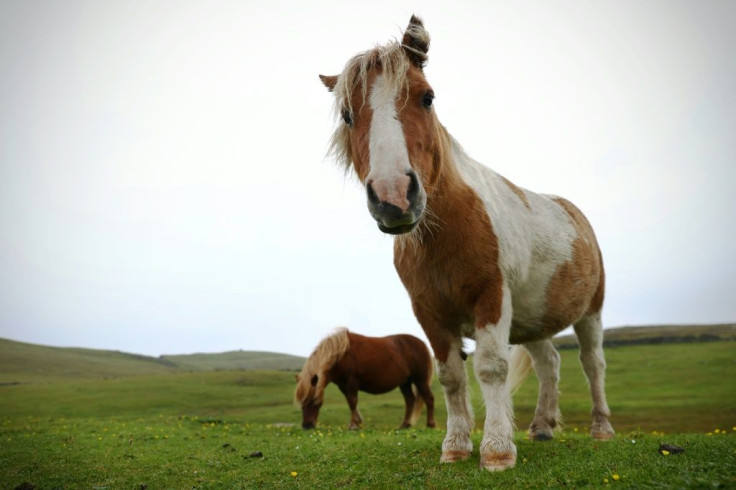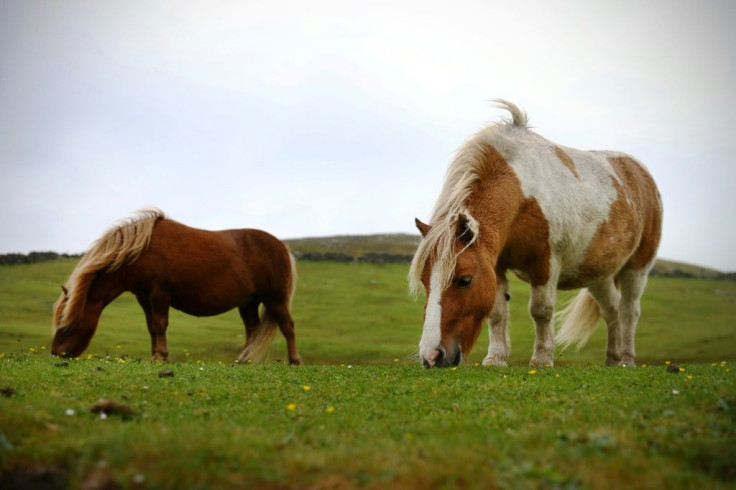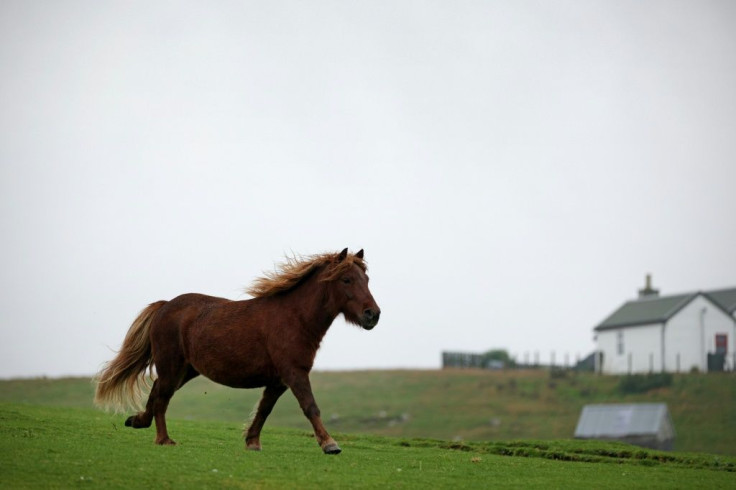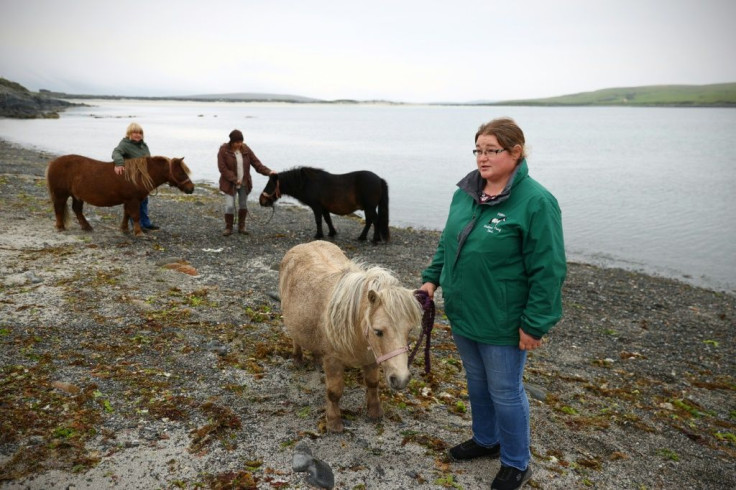Hot To Trot: Shetland Ponies Prove Popular During Pandemic
For hundreds of years, the inhabitants of the northernmost part of Scotland and the United Kingdom have bred small horses -- the Shetland pony.
The animals, named after the unforgiving northern archipelago in the North Sea, have long drawn attention for their distinctive shape, size and rough hair.
But during the coronavirus pandemic they saw their value soar to new highs, prompting hopes of another bumper year as the islands' annual sale approaches.

"People had more money because they stayed at home and couldn't go on holiday, and a pony is a very nice way to spend your time," Sheena Anderson, chair of the Pony Breeders of Shetland Association, told AFP.
While demand for Shetland ponies has fluctuated over the last 12 months, prices in 2020 hit records of more than ?3,000 ($4,100, 3,500 euros) for one of the tiny horses.
In tougher times, they have sold for as little as a few hundred pounds each -- and sometimes even less.
Breeders are now champing at the bit for the upcoming October 1 auction, which has been held online for the last few years.

Because of their size, Shetland ponies are cheaper and easier to maintain than larger horses, said Anderson.
And, as well as being relatively strong for their stature, "they're cute", she added.
This year the breeder is putting two of the ponies up for sale.
She said as well as having a strong legs and a good "tail, top line and movement", the animals also have to have a certain look.

"It's like a beauty contest," Anderson explained, stroking Dester, a miniature beige specimen, barely one metre (3.3 feet) tall.
The breeders are counting on high demand this year driven by the online sale, which has widened access to buyers from all over the world.

"We've had interest already from people in Germany and Norway," said Anderson, but buyers have also bid for the ponies from Russia, Canada and the UAE.
Prices remain very low compared to their larger cousins and pony breeders -- who number about 100 on Shetland -- often struggle to make a living.
"I do it as a hobby. I don't make any money on it," Anderson, a nurse by profession, said, adding that in other countries, like the Netherlands, breeding is better regulated, organised and more lucrative.
For the head of the breeders' association, the peaceful Shetland ponies are an integral part of the remote islands' culture and identity.
The horses are everywhere -- grazing on windswept hills, their manes tossed in the strong ocean breeze, or walking on white sandy beaches buffeted by turquoise waters.
Elaine Tait, whose parents breed Shetland ponies, fell in love with the animals from the age of five, when she repeatedly told them: "I want a pony."
Her parents relented, then five years later at the age of 10, she got her second.
Today, alongside the family business, she has founded her own riding school for children and a separate business for tourists: the Shetland Pony Experience.
The Shetland ponies' tiny stature is thought to have been part of their adaptation to the islands' harsh climate.
The windswept archipelago, home to some 23,000 people, 110 miles (180 kilometres) north of mainland Scotland, and just under halfway to Norway.
When the harsh winter sets in, grass is scarce and only the smallest creatures were able to survive.
As a result, the ponies have super strength for horses of their size and a century ago put it to use in agriculture or in coal mining.
Today, they are bought to show in competitions, for horse racing, breeding, to teach children how to ride, as pets or even therapy animals.
Libby Morrison, a therapist, explained on her website she has found "horse-human interaction to have a wide range of benefits for those affected by anxiety, depression, PTSD (post-traumatic stress disorder), and autism".
© Copyright AFP 2024. All rights reserved.





















